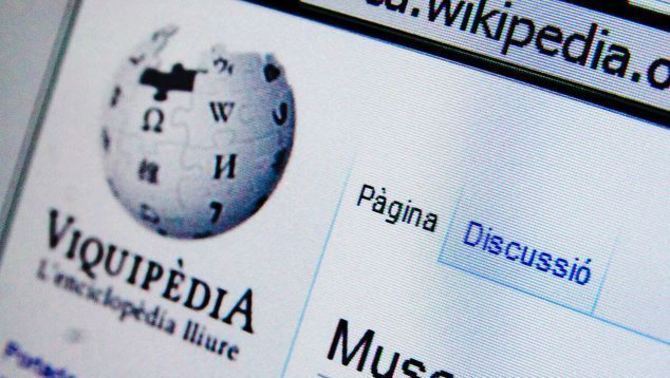16.03.2021 - 13:23
|
Actualització: 16.03.2021 - 14:23
Wikipedia, the free online encyclopedia with endless travails of information and knowledge, was created in the English language in mid-January 2001. By 16 March, the Catalan language edition (Viquipèdia) was one of the first created, and the article for “Àbac” – Catalan for “abacus” – was the first article on the online encyclopedia published in a language other than English. It was made by computer scientist Daniel José Queraltó at his home in Andorra la Vella.
Since then, ‘Viquipèdia’ has gone from strength to strength, boasting over 673,000 articles, ranking 20th of more than 300 languages that have Wikipedia articles. The platform is self-managed by volunteers, many of whom form part of the group Amical Wikimedia, the association of volunteers of ‘Viquipèdia’. One such volunteer is Xavier Dengra, a 26-year-old scientist from Cornellà de Llobregat who is currently studying a PhD in Bioscience Engineering, and says he gets huge satisfaction from taking part in the community.
Dengra has been writing new Wikipedia articles as well as editing existing ones ever since his early teenage years, and says he has “grown” alongside Viquipèdia’s evolution. The science professional says he started off his Wikipedia journey when he was cooking mashed potatoes with his mother and realised the article for mashed potatoes didn’t exist in Catalan, and he was quickly inspired to create the article himself.
Since the age of 14, Dengra says he gets an “altruist satisfaction” from working with the online encyclopedia. “It has helped my studies, it’s another social network, so it’s more than a simple hobby for me, it’s a part of my life and my social life I would say.” He also appreciates the “satisfaction of knowing that what I am doing is helpful for others,” and additionally the fact that he is helping to “preserve [his] language.”
Digital activism
Beyond simply being a knowledge database, there is a philosophy that stands behind the very concept of Wikipedia, one that backs the free sharing of information and the open-source principles to democratically allow it to be owned and operated by all people. As well as writing and editing articles, Dengra has also partaken in many workshops and talks in places like universities, schools, and libraries to teach people about the virtues of Wikipedia and how people can not only use it but get truly involved in the community that surrounds it.
Dengra explains that one of his biggest challenges during his time with the platform was to get people to take him seriously at events such as talks and workshops. “Some people were reluctant to that only because I looked like a teenager, and it’s like ‘What is this guy going to explain to me about releasing knowledge and about writing things?’” he explains. “Now I have some recognition when I go to a workshop and people take me seriously, but six years ago it was not [like this].”
Catalan, world leader in quality articles
Dengra cites the high rate of digital activism among Catalans and their will to participate in the encyclopedic community for the reason that the Catalan language version of Wikipedia stands out as a world leader in featured quality articles on its database. The ranking is based on a thousand basic articles that every Wikipedia in every language should have. The classification of ‘quality’ is based on having great levels of detail, being well-written, well-researched, have relevant media attached and referral links to and from the page with other articles.
“Since seven years ago, some Catalan Wikipedians really make an effort to update monthly and keep these articles up to date in a way that we get 99.9 or 100 in this score every time it is updated,” Dengra explained. Nowadays, the Catalan Wikipedia community have a new goal within the realm of quality articles: completing an extensive list of the 10,000 articles on the most relevant fields of knowledge and human activity. They aim to have this mammoth task completed within a year.
The challenge comes after the group tasted success in their previous goal: creating and improving 120 biographies of 19th-century Latin American women in just one week. The competition celebrated both the bicentenaries of several South American countries’ independence as well as International Women’s Day, falling on March 8.


